BMW 6 Series Classic Cars for Sale
The BMW 6 Series, launched in 1976 as a grand touring coupé, is renowned for its striking 'Sharknose' front, luxurious cockpit and rear-wheel-drive inline-six engines. From the elegant E24 through to the technologically advanced later generations, the 6 Series fuses long-distance comfort with sporting dynamics. Enthusiasts value its robust engineering, distinctive Paul Bracq design and motorsport roots, with the M635 CSi at the top end for sheer performance. Explore the 6 Series' unique blend of German engineering and classic GT style.
Search results
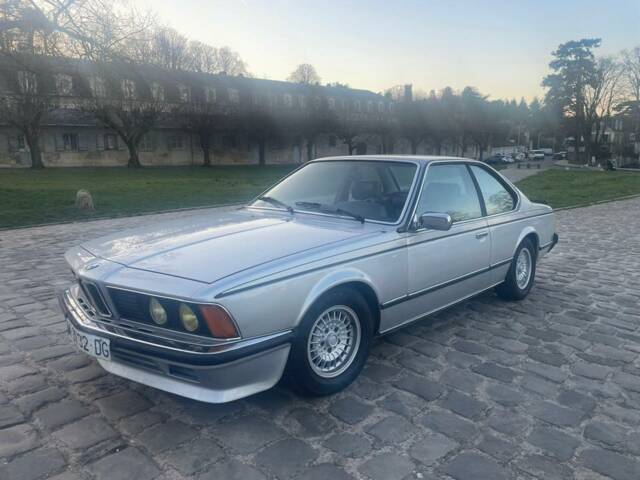
1979 | BMW 635 CSi
**5 Gang Sportgetriebe**Historie**Top Zustand**
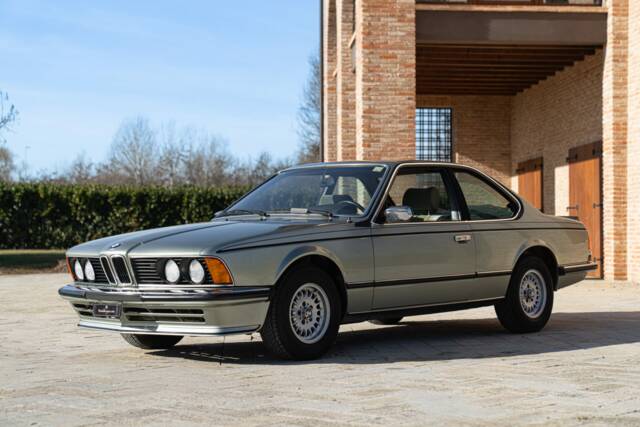
1983 | BMW 635 CSi Group A
Bmw 635 CSI
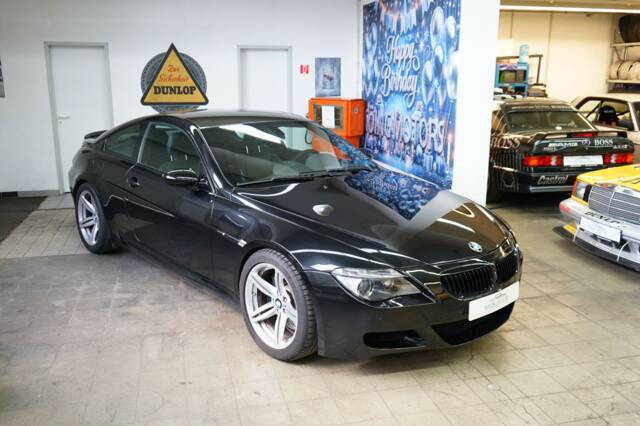
2006 | BMW M6
Als Handschalter
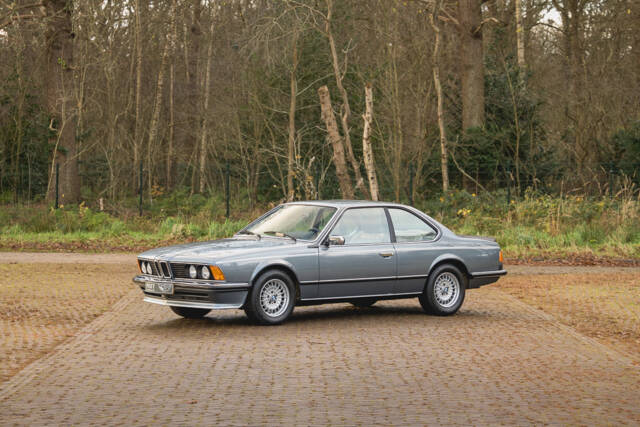
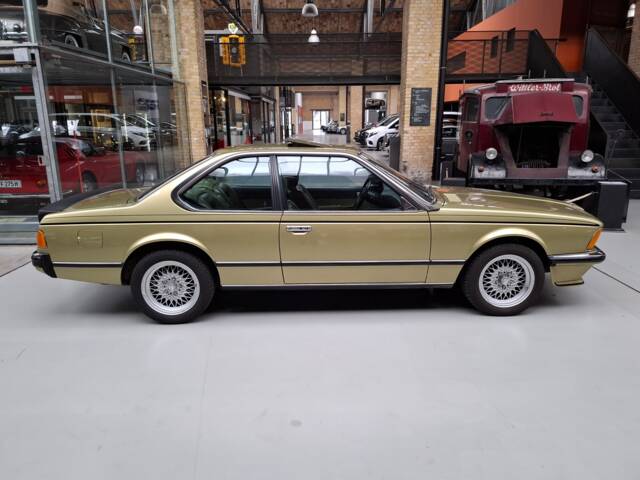
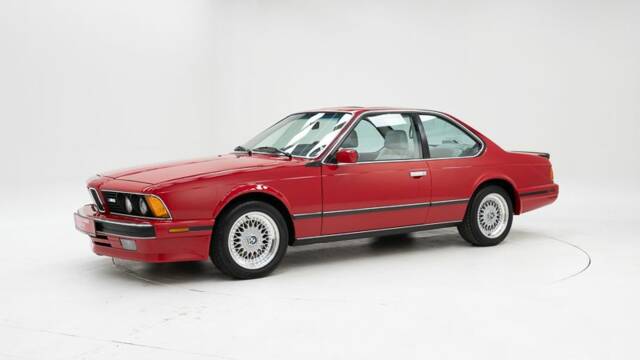
1988 | BMW M6
1988 BMW M6 '88
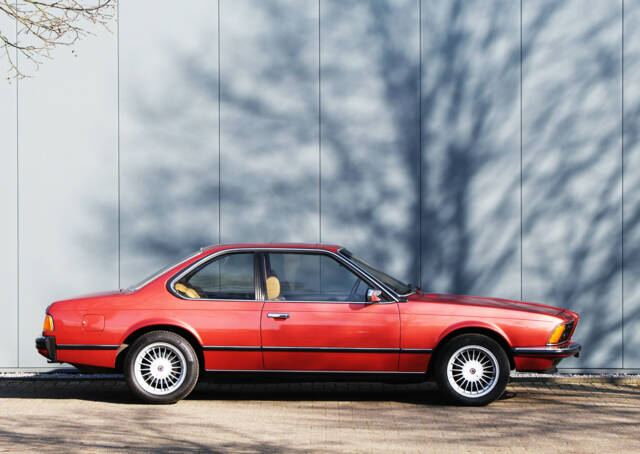
1977 | BMW 633 CSi A
1977 BMW 633 CSi A – A Classic in Burgundy Red
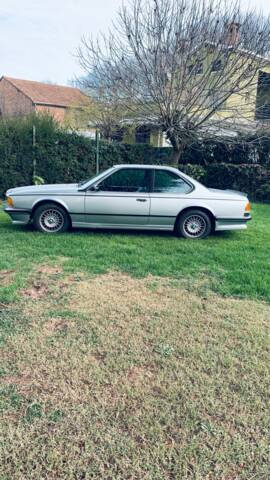
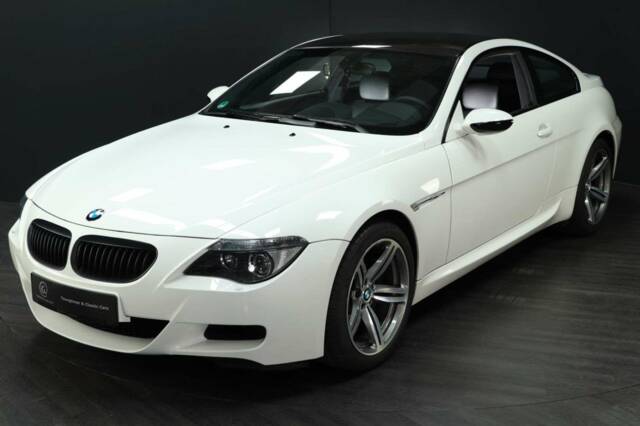
2006 | BMW M6
BMW M6
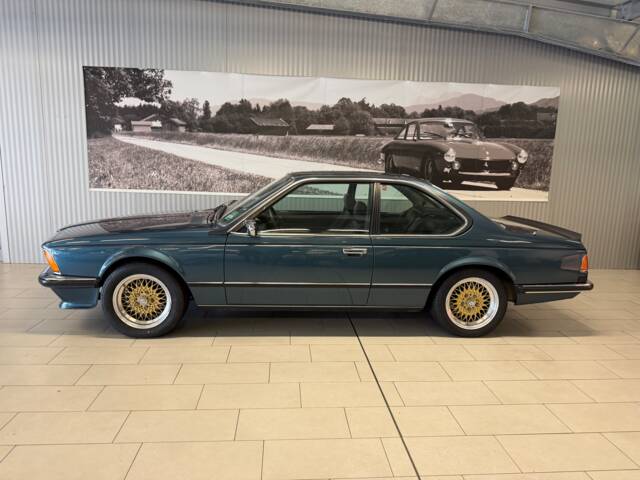
1984 | BMW 635 CSi
635 CSi - deutsche EA, Erstlack, Schiebedach
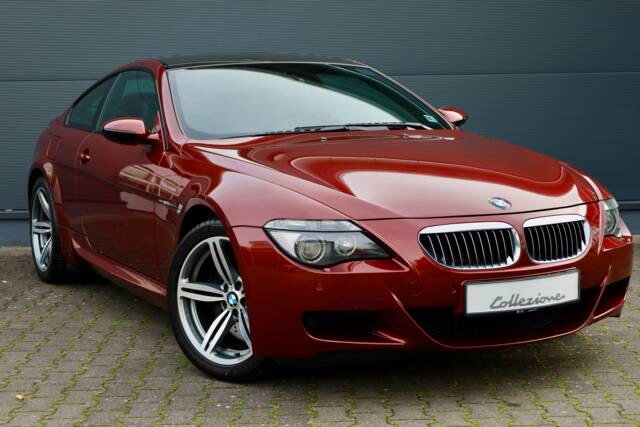
2005 | BMW M6
*V10*2.HAND*BRD-FZG*
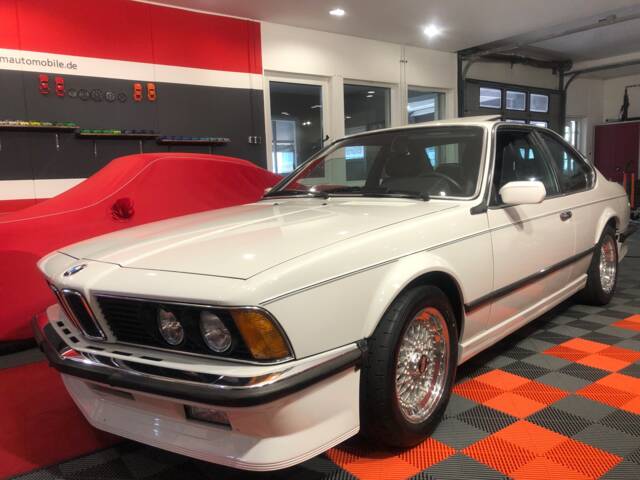
1986 | BMW M 635 CSi
erste Serie ! Klima*Leder*Sportsitze* el SSD*
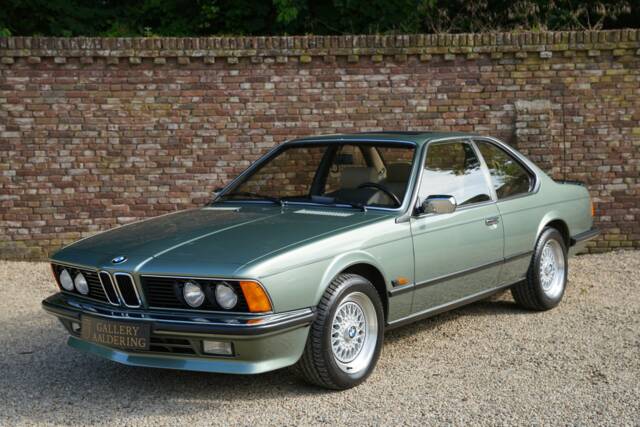
1986 | BMW M 635 CSi
BMW 635 Csi "Less than 42.000 KM - Factory new condition" True collector's quality, Low mileage of 41880 kilometers, Offered with complete history file from new, "Platanengrün" with Pearl beige leather,Newly delivered in Sweden, Executed with electric seat adjustment with memory - electric sliding roof - M sports suspension - climate and more factory options, In a marvelous configuration with options,
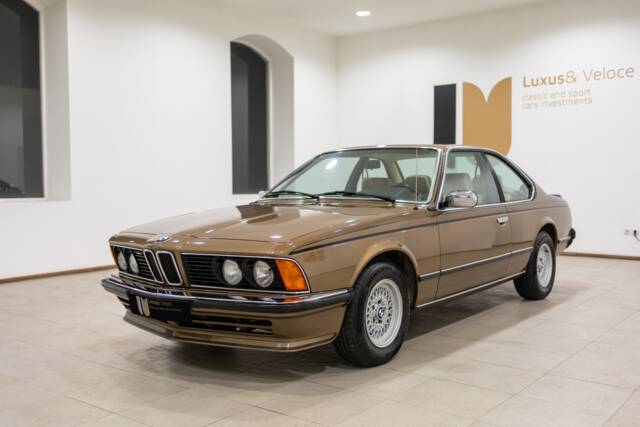
1982 | BMW 635 CSi
1 Owner - 48.000Kms
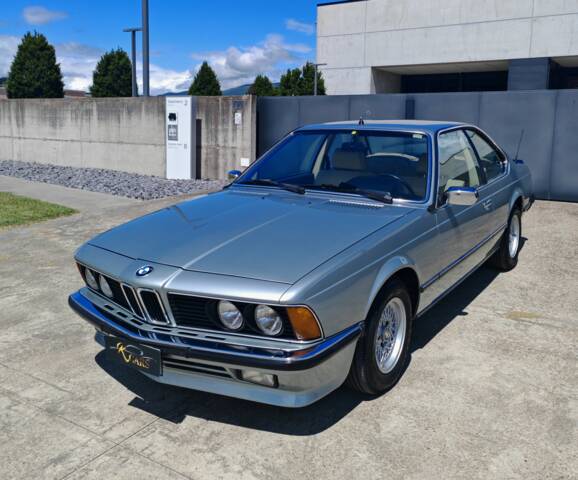
1981 | BMW 635 CSi
MANUAL SPORT GEARBOX !!!
BMW 6 Series Classic Cars: Prices & Market Values
The market value of BMW 6 Series classic cars is primarily determined by the specific manufacturer code and variant, as well as technical condition, originality and mileage. Additional factors include rarity, history and documentation. A well-maintained, largely original vehicle with low, verifiable mileage and complete history including appraisals and documentation typically achieves significantly higher prices than a comparable vehicle with deferred maintenance, many modifications or unclear provenance.
BMW 6 Series: Market Prices & Value Trends
Based on sales data from the Classic Trader marketplace, the BMW 6 Series classic market in Europe has been broadly stable to slightly strengthening over the period from January 2021 to January 2026, with most activity centred on Germany, the Netherlands, Italy and the UK. Mainstream E24 models such as the BMW 635 CSi (late 1970s to late 1980s) typically cluster in the €25,000–€45,000 band, with more usable examples appearing in the low-to-mid €30,000s, while earlier 633 CSi/628 CSi cars often sit a step lower at roughly €15,000–€30,000 depending on condition. At the top end, the M 635 CSi (1984–1988) regularly commands around €55,000–€80,000, reflecting its Motorsport pedigree and collector demand. Later cars (e.g., E63/E64 M6, 2005–2007) show a wider spread but commonly land around €45,000–€65,000 in this dataset. A few very high asking prices appear, but these look like outliers or special provenance cars, so the current market is best read as firm rather than overheated, with values supported by scarcity, design appeal and rising restoration costs.
History of the BMW 6 Series
BMW introduced the 6 Series in 1976 as a successor to the E9 coupés, setting a new standard for luxury GT models. The E24 debuted at the Geneva Motor Show and was initially assembled by Karmann before BMW moved production entirely in-house due to quality concerns. It was longer and wider than its predecessor, offering a greater sense of road presence and comfort. The design was the work of Paul Bracq, whose focus on a driver-oriented cockpit and forward-thrusting 'Sharknose' nose gave the car much of its character. Over 13 production years, the E24 maintained rear-wheel drive and an inline-six, reinforcing BMW’s brand DNA. In 1989, it made way for the E31 8 Series, reflecting evolving market demands.
Model History
Across its four generations, the 6 Series evolved substantially. The first (E24, 1976–1989) was shaped as a 2-door coupé with several six-cylinder engines, including the 628 CSi, 630 CS, 633 CSi, 635 CSi, and the range-topping M635 CSi/M6. The E24 benefited from multiple facelifts, notably in 1982, with improved chassis components derived from the 5 Series and adaptation to more advanced internals. After a 16-year pause, the 6 Series resumed in 2004 (E63/E64, coupé and cabriolet), followed by the F12/F13/F06 generations, synthesising lighter aluminium/steel construction and state-of-the-art electronics. Each generation introduced new variants and powerplants, with the F12/13/06 marking the appearance of Gran Coupé bodystyles and turbocharged engines, keeping the range contemporary while preserving its grand tourer roots.
Highlights and Unique Features
The BMW 6 Series appeals through distinctive engineering solutions: from its signature 'Sharknose' front (especially on the E24) and driver-focused dash to its combination of comfort and performance. Technical highlights include the use of high-performance straight-six engines, advanced electronic fuel injection, and comprehensive safety equipment for its time, including ABS and advanced braking systems. The interior was offered in a range of high-quality materials—velour or leather—with luxurious options like the 'Highline' full-leather interior, as well as Recaro sport seats in performance models. The car’s stature as a status symbol in the 1980s is reflected in exclusive features and its prominent roles in film and motorsport. Motorsport achievements underline its technical pedigree, including wins in the ETCC and endurance racing.
Technical Data
Special Editions and Collectible Models
The pinnacle of the E24 range is the M635 CSi (M6 in some markets), developed by BMW Motorsport and powered by the M88 engine from the M1 supercar—producing 286 hp and 340 Nm. This model featured uprated chassis, brakes, and unique styling cues such as spoilers, BBS wheels, and bespoke interior trim. The "Highline" late-series special had extensive leather upholstery extending to the dashboard and roof liner, powered memory seats, and unique wheel options. Early Karmann-built E24s, original colour/interior combinations and rare manual-transmission variants are also considered particularly desirable among enthusiasts.
Weak Spots and Common Issues
Thorough rust-proofing was implemented but common rust issues remain at the axles, sills, wheel arches, and jacking points. Electrical problems are not uncommon, particularly with interior electronics and sometimes with fusebox or relay connections. Window mechanisms, seat electronics, and sunroofs on later cars can show wear. Parts supply for many E24 components is generally good, especially for mechanical items shared with the E12/E28 5 Series, but premium for rare interior and electrical parts, especially for the 'Highline' or M models.
Engine, Performance, Transmission and Handling
Balancing comfort with agility, the 6 Series—especially the E24—was engineered for long-distance high-speed touring. Models like the 635 CSi delivered up to 218 hp and 310 Nm of torque, achieving 0–100 km/h in around 8.9 seconds and a top speed close to 227 km/h. The M635 CSi’s 286 hp trimmed the 0–100 km/h time to around 6 seconds with a maximum speed of 255 km/h (non-catalysed). The chassis, derived from the 5 Series, gives a composed, rear-wheel-drive experience with optional LSD, sports suspension, sport steering wheel, and ABS from the mid-1980s. Braking on M models is upgraded with larger, ventilated discs and four-piston front calipers. - 635 CSi: Notable for its blend of power, sport capability and day-to-day usability.
- M635 CSi/M6: Track-influenced, high-revving M88 engine, motorsport-derived underpinnings, rare in original 'Katlos' (non-catalytic) form.
- 628 CSi/630 CS/633 CSi: Earlier models, smooth inline-sixes, favoured for their classic GT character.
Interior, Comfort, Exterior and Design
Paul Bracq’s E24 design is celebrated for its distinctive 'Sharknose' profile and gently tapering greenhouse. The dashboard cants toward the driver with an ergonomically optimised switch layout. Early models featured chromed mirrors and trim; updates after the 1982 facelift included impact-absorbing bumpers and refined interiors. Leather and velour upholsteries were offered, with the 'Highline' providing extended leather coverage including pillars and headlining. Sports seats, memory electric adjustments, air conditioning, advanced HiFi systems, and on-board computers showcase BMW’s upmarket focus. Alloy BBS or Alpina wheels, individual colour and trim choices, slide/tilt sunroofs and accessory kits underlined exclusivity. US and international market versions differ in lighting, bumpers, and equipment details.
Other Relevant Features
The E24 featured comprehensive on-board tools, a spacious and practical boot, and a reputation for excellent long-distance comfort. Motorsport legacy adds historical significance, notably BMW’s wins at Spa-Francorchamps and the ETCC. The car competed directly with period GTs like the Mercedes SLC, Porsche 928 and Jaguar XJS, but stood apart for its driver engagement and mechanical robustness.
Summary
BMW’s 6 Series, especially the E24, set a benchmark for grand tourers, blending a bold design, strong engineering and exclusive features. While the classic 6 Series stands out in both supply and demand among enthusiasts, later generations introduced new technologies and bodies without losing sight of the GT ideal. The model’s engineering pedigree, unique driving experience, and breadth of technical and luxury options ensure its continuing appeal in the classic car market.














